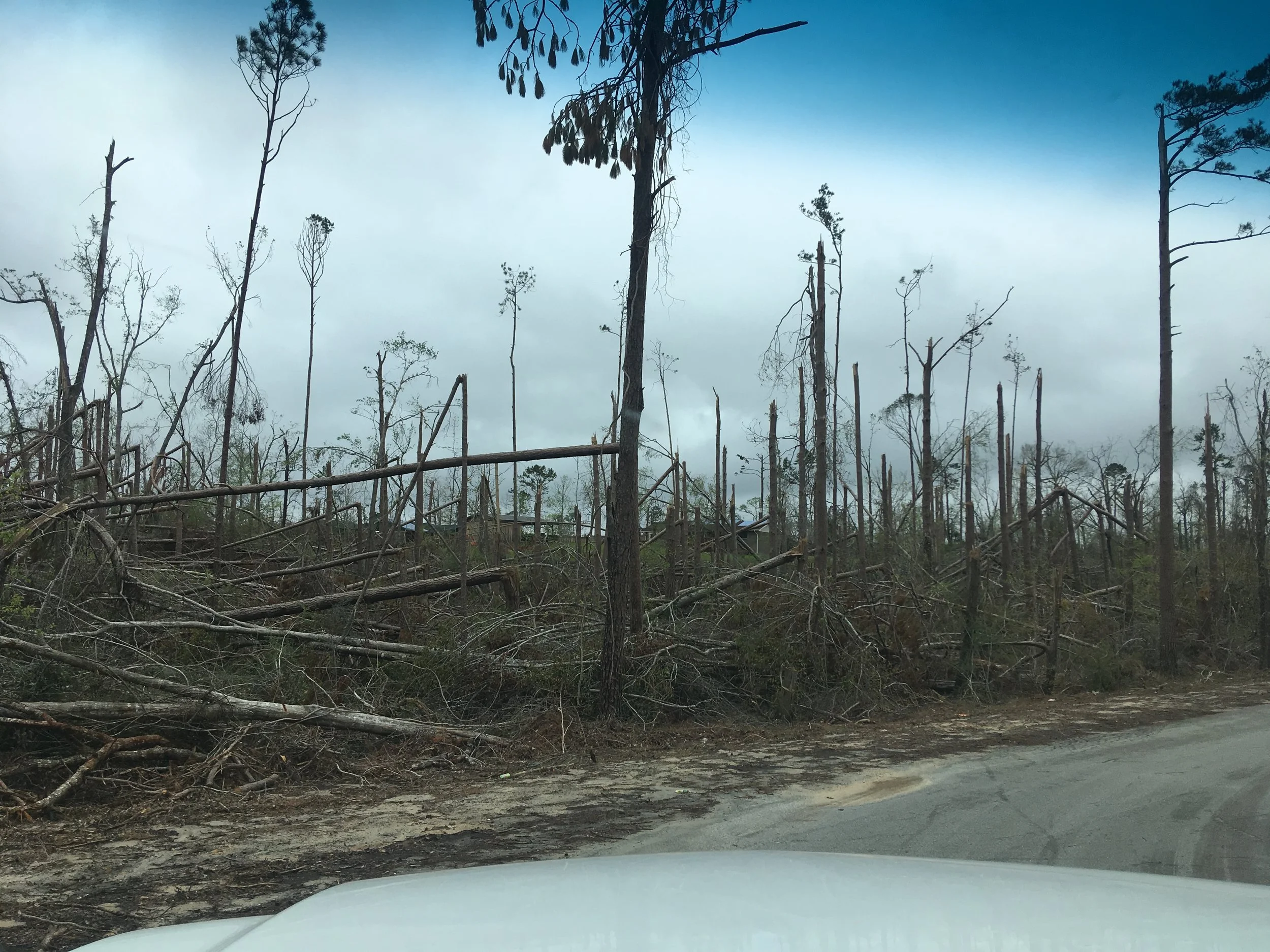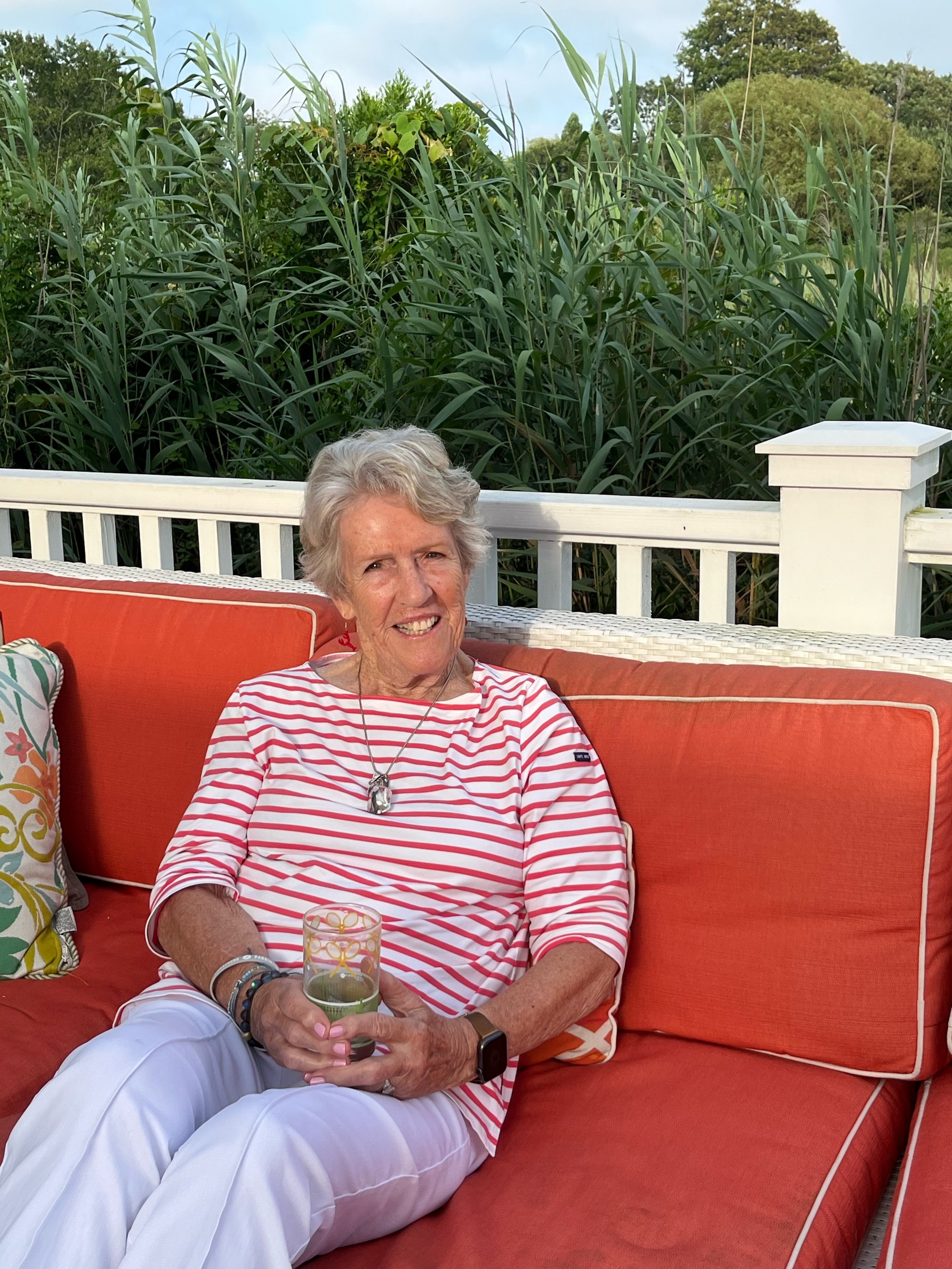“HURRICANE HERO” KEEPS ON TRUCKING
/Early last November I spotlighted Dylan Renell, a strapping 26-year-old tree trimmer and house remodeler who left his comfortable life in Maine to drive south and work for FEMA in the aftermath of Hurricanes Florence and Michael, two horrific storms that devastated our southeast coast this past fall.
Dylan’s plan was to go directly to the Florida Panhandle. But while driving his camper through North Carolina, FEMA flagged him and his buddy over and sent them directly to the Carolina coastline. In late September, Florence, a Category 1 storm, had crashed onto the shoreline with winds in excess of 90 miles per hour, causing a devastating storm surge of 10 feet, and inflicting billions of dollars in property damage throughout the state. More than 50 people died.
In mid-December, having completed that project for FEMA, Dylan and his pal packed up and drove their camper south to Jackson County, Florida, which borders Georgia and Alabama. Nearly 50,000 people live in this heavily-forested northwest corner of the Sunshine State, and the average household annual income approaches $30,000. This is not the Florida you see on travel ads.
Jackson County was one of the hardest hit in Florida by Hurricane Michael in early October. This category 4 storm, the third strongest storm ever to make landfall in the United States, featured winds in excess of 140 miles per hour. The ferocious storm snapped trees in half, ripped roofs off houses and brick facades off buildings, and left much of the county looking “like a bomb went off,” a resident said. Television coverage focused on the coastal cities of Panama City and Mexico Beach, but Marianna in Jackson County, just an hour north, suffered the same horrendous devastation.
This once lush forest was leveled by Hurricane Michael.
In the days after Michael had rampaged through Jackson County, residents were living in tents, their cars, or with friends. When they needed groceries, they walked to a scantly-stocked POD instead of a Publix, paying only in cash because ATMS didn’t work. They had no phone service, no internet, no television, no water. Roads were impassable. A local said, “This is like Hurricanes Irma and Andrew wrapped into one.”
Driving into Mariana, the county seat of Jackson County, Dylan and his friend encountered utter and complete devastation — almost two months after Michael’s wrath. Dylan wrote, “The damage here is far worse than in North Carolina — the county is virtually destroyed. Thousands and thousands of trees are snapped like toothpicks, and the ones that didn’t break most likely blew over all together and were uprooted.”
Another view of a forest devastated by Hurricane Michael.
Dylan’s work day starts at 5:30 AM and runs to about 8 PM, seven days a week. He wrote, “The only days we get off are when the rain is so bad, they have to close down the dump sites. On our few days off, we go to the laundromat, then clean our camper. We also check the big truck we drive and do necessary maintenance.”
“The work here is quite different from what we did in North Carolina,” Dylan emailed. There they spent most days picking up piles of debris. “Here in Mariana, we have a chainsaw with us and we have to cut up all the debris so that it fits into our truck. It’s time-consuming and quite labor-intensive.”
Dylan and his pal work for Ceres Environmental Services, Inc., and are being paid by FEMA. (Ceres is one of the nation's largest debris and environmental services provider helping communities recover. They provide extensive disaster-related services to all levels of government as well as private sector companies in the aftermath of catastrophic events.)
Fortunately for everyone, Dylan wrote, “The government shutdown didn’t really affect us as we were only shut down for two days because of it.”
“Nothing that I’ve seen has really surprised me, considering the strength of the storm,” he wrote. “I’m not exhausted physically, but I am sure tired of living in a camper! The good news is that I’m positive I’m in better physical shape since I left Maine because of all the running around we do.”
The other good news is that there are young men like Dylan in our country, willing to give up their creature comforts and fun youthful lifestyle to help people whose lives have been irrevocably changed by nature’s dangerous whims. Thank you, Dylan Renell.




